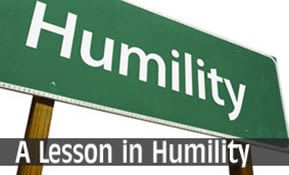
Vayeshev: Becoming a Tzaddik
We learn about the beginning of Mashiach. Yosef the Tzaddik understands the power of the individual to bring redemptive change to the entire nation.

Challenge for Growth
Kol Yisrael arayvim zeh lazeh – all Jews are interconnected. What happens to one Jew affects all of us. In Takanat Hashavin, Rabbi Tzaddok HaKohen teaches that one Jew’s thoughts of teshuva awaken a similar spark in the heart and mind of every other Jew! Even if this superimposed teshuva is not actualized, nevertheless it has gently entered the heart of every Jew in the entire world. A Jew who has a hirhur teshuva, in other words, if he even thinks of returning to Hashem, he jumps temporarily to the level of Tzaddik. And since he is at the level of Tzaddik, he has the ability to influence every other Jew.
This idea is illustrated with the famous story of the potential convert who tells Shammai and Hillel that he wants to learn the entire Torah while standing on one foot.
Although the potential convert’s request seems juvenile, Rav Yaakov Meir Schechter explains that his true intent was to ask for the abolishment of yerida letzorech aliya, the need for challenges to attain spiritual goals. The potential converted wanted to attain an elevated spiritual state without the prerequisite challenges.
Shammai sent the potential convert away by brandishing a builder’s beam. He showed him a beam to convey the idea that the world was constructed this way – you must face challenges to grow spiritually. Until the final Tikkun, growth is attained solely through sacrifice.
Hillel, however, used a different method to convey the same idea. Hillel told the potential convert, “What is hateful to you, don’t do to your friend.” Hillel was really asking, “How did you get the inspiration and courage to search for Judaism? Do you think it came from nowhere? Nothing comes from nowhere. Rather, somewhere in this world, a Jew fell to a low and unholy place. He then began the long trek of climbing up. As he elevated himself, this Jew brought with him all the souls that were in the same dark state that he had been in – including you. As a result of that Jew’s yerida, fall, you were given life. When you fall, remember to use your fall to elevate another person who has fallen to the same low place.”
A Light to the Nations
Hillel and Shammai had a famous discussion on how to light the Chanuka lights. Hillel, whom we presently follow, teaches that we light one candle the first night and add an additional candle each subsequent night. In this way, we increase the light as we progress slowly up the ladder of holiness.
Shammai teaches that on the first night we light all eight candles, and each subsequent night remove a candle until, on the eighth night, we are left with only one candle. He explained that the only other eight-day holiday in the Jewish calendar is the holiday of Sukkot. On Sukkot, we sacrifice the largest number of korbonot (sacrifices) on the first day, and diminish the offerings by one animal each subsequent day. The Sukkot sacrifices were offered to elevate the seventy nations of the world, while the last – eighth – day, Shemini Atzeret, was dedicated to concentrating on our Nation’s personal and unique relationship with Hashem. On Shemini Atzeret, the korbonot were solely for the Jews.
In the story of Chanuka, the Greeks attempted to close our Beit Hamikdash, but without success. On Chanuka we celebrate their lack of success.
When Shammai ruled that the lights should be diminished by one each day, he was alluding to the fact that Chanuka relates to our ultimate mission of enlightening the world to the Words of Hashem – a daunting task at best!
Shammai and Reb Tzaddok are awakening us to a higher reality. Things are not as they appear. Apparent rules of nature and politics are just that – apparent rules, and have little to do with reality. Yet, look at the power of each and every Jew. He can sit at home and think about how to actualize his tachlit, his Divine purpose in life, and thereby change the world!
Understanding Our Power
There is a famous story about a Jew who was living a very immoral life. He put aside a large sum of money to be used for immoral purposes. One time, however, he chanced upon an unfortunate woman whose children were being sent into servitude because of her unpaid debts. In an unusual moment of compassion, he gave her all his money to settle her debts.
The angels in Heaven argued how to reward this man for such a good deed. Some argued that this one mitzvah did not negate his much longer list of aveirot (sins). Others argued that considering the man’s corrupt nature, this one mitzvah tipped the scale in his favor.
In the end, he was rewarded with the power to bestow effective blessings. Whoever received his blessing would see the blessing materialize. But at the same time, he was made into a drunk, so that he would not be able to use, and therefore misuse, this awesome power.
Eventually a great Tzaddik in needed of this man’s blessings was able to sober him up and inform him of the extent of his power.
This story always intrigued me. Why grant such awesome power and then, for all practical purposes, take it away? What kind of reward is this? Did this story actually happen, or is it to remind us of our own great power?
Rebbe Nachman teaches that a person must never lose confidence. We must never think that we are incapable of doing what we need to do. We must be aware of our power, of our strength. Once we enter the sphere of despair, we lose whatever power we possess. For that reason Rebbe Nachman screams: Ayn shum yi’ush ba’olam klal – There is absolutely no such thing as hopelessness!
The greatest gift we can bestow on another person is to restore his confidence, to encourage him. Be strong, because you are strong.
Beginning of Mashiach
Parshat Vayeshev teaches us about the beginning of Mashiach. Yosef (Joseph) the Tzaddik understands the power of the individual. In Sefer HaParshiyot, Rabbi Eliyahu Kitov explains that Yosef wanted to take the entire galut (exile) of the Jews upon one individual – himself.
Yosef was well aware of the prophecy that had been passed down, father to son, from our ancestor Avraham (Abraham). He knew that the Jewish People would descend as a Nation to Egypt and be exiled there for four hundred years. From his dreams, Yosef also understood that he was the leader of his brothers.
A leader is the equivalent of the sum total of all his subjects. A leader is also the servant of his subjects. For that reason, Yosef allowed himself to grow distant from his brothers, almost forcing them to misunderstand and hate him. His intent was to minimize, or even eliminate, the need for the exile.
The pain and eventual redemption of the individual can and does mitigate the strict judgment of the group. The Egyptian exile removed and elevated the holiness that was concealed in Egypt. When we left Egypt, Egypt remained bare and empty. Nothing holy remained, and for that reason we are forbidden to return there. There is nothing left for us to accomplish in Egypt.
Yosef the Tzaddik
Yosef is the only person in the Tanach who acquired the official title “Tzaddik”. Therefore, Yosef defines the title. Nechama Leibovitz points out that the greatness of Yosef HaTzaddik is encapsulated in the word “Hineini,” which means, “Here I am at your service.” When Yaakov (Jacob) commanded Yosef to go to his brothers in Shechem, Yosef responded with, “Hineini.”
Rashi explains that “Hineini” refers to Yosef’s attribute of zerizut (alacrity) in performing the will of his father. In Parshat Lech Lecha, Rashi explains the meaning of “Hineini” and Rashi’s policy was to never repeat definitions.
So why did Rashi break this rule? To differentiate between Avraham’s “Hineini” and Yosef’s “Hineini”: Avraham (Abraham) said “Hineini” without knowing what Hashem was about to ask of him. Yosef, however, knew exactly what his father asked of him. He fully understood the danger it entailed, yet he still responded with “Hineini.” Yosef’s “Hineini” was uttered with the absolute mesirut nefesh (self sacrifice) that characterizes the Tzaddik.
Reb Tzaddok reminds us that we can each pull ourselves out from the mire into which we have fallen and elevate ourselves spiritually. By doing the work required to face and overcome the challenges that lie in our path, we can attain the level of Tzaddik, and thereby affect kindred souls attempting to climb up from the mud.











Tell us what you think!
Thank you for your comment!
It will be published after approval by the Editor.